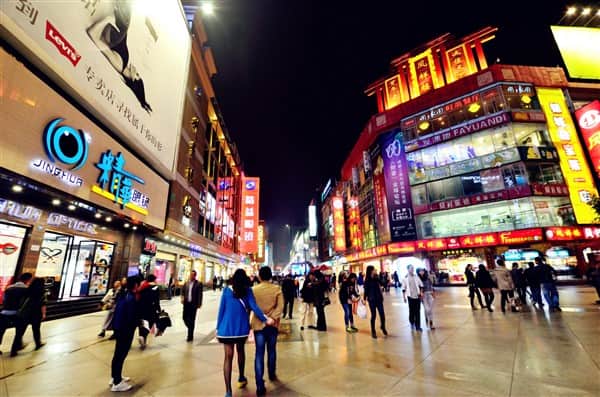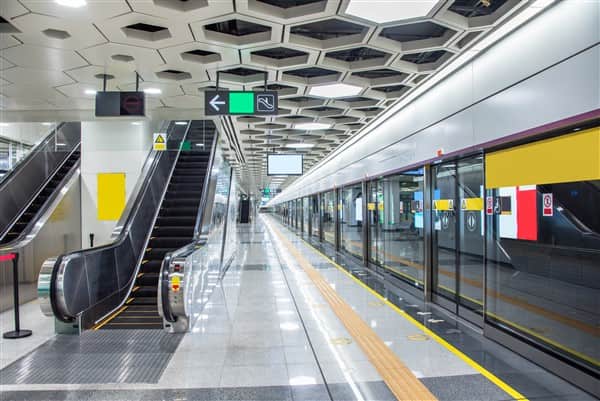Top 8 Chinese Cultural Tips You Need To Know
Feel free to skip ahead by clicking one the links below:

Using VPNs in China
If you’re planning on going to spend time working in China then you have no doubt heard about the Great Firewall.
Many sites that are used daily by people in the West (Facebook, YouTube, Google etc) cannot be accessed in China. The reason things are like this is due to Government censorship. The Chinese Government wants to control what sites people have access to.
It all started in the year 2000, when China introduced the ‘Golden Shield Project’ – A massive, Government run, internet censorship and surveillance project.
China’s argument for employing this massive-scale, internet censorship is that it’s a way to maintain social order among a huge population and protect its national security.
Whatever the true reason is for the Great Firewall of China, it exists and you’re going to have to deal with it. Luckily, having a good VPN can make your life a whole lot easier by providing you with a way around the firewall.
What does a VPN do?
VPN stands for ‘Virtual Private Network’ and is a secure and private way to send and receive information through the internet. A VPN is essentially a secure ‘tunnel’ that allows you to avoid the Great Firewall of China and access any site you wish to.
China does, however, often crackdown on VPN usage and you’ll find that during sensitive government meetings your VPN might stop working. However, the VPN companies usually adjust quickly and their services keep working. It’s like a back and forth game of tug of war between the Chinese Government and the VPN providers.
Having a good VPN installed on your Computer and phone is essential before going to China, especially if you run an online business. Here are some suggestions for which VPNs to use:
Express VPN
Express VPN seems to be one of the most popular VPNs used by foreigners in China. The reason for this is simple – reliability. Express VPN claims a 99% uptime and boasts big range of server locations. Express VPN works on just about every device/operating system so you can’t really go wrong!
VyprVPN
VyprVPN is another very reliable VPN that a lot of expats swear by. VyprVPN claims to be ‘the world’s most powerful VPN’ and it may indeed be! It has a good number of server locations with fast speed and consistent uptime. The premium version has an inbuilt ‘Chamelion Protocal’ which aims to bypass any form of censorship, reducing the effectiveness of China’s Great Firewall even further.
Astrill VPN
Astrill was by far the favourite when I lived in Beijing – almost every expat I knew was using it. It’s an easy-to-use VPN with good download speeds. Last year, Astrill experienced some difficulties and was unusable for periods of the year. However, they have shown resilience to the Great Firewall and are now back up and running. Astrill is definitely solid choice of VPN.
Read More
Traveling in China
In China’s big cities public transportation is excellent. Subway, bus and taxi are the transport methods you’ll likely be using the most. It’s a good idea to find the closest subway station to you and write down its name on your phone or on a piece of paper. That way, if you ever get lost or the taxi driver doesn’t know where your hotel is, you can just show them the name of the subway.
If you’re going to be staying in Beijing, Shanghai or Guangzhou, it’s very likely you’ll have a subway station within walking distance. And, if you don’t, there will definitely be a bus stop somewhere close. Buses will usually have a red neon strip inside at the front that tells you the next stop so you’ll know when to get off.
The subway in China
When you first take a subway, you should take a picture of the subway map on your phone (or better yet, download a subway app for the city you’re in) so you know roughly where you are at all times. The subway systems in the big cities can seem daunting at first (especially if you’re from a city/town that doesn’t have a subway, like I was) but it’s actually extremely easy to use and due to all the signs and arrows (which are also in English) it’s basically impossible to get lost.
Transport Card in China
Before you enter the subway you’ll either have to buy a ticket or swipe your transportation card. In the big cities you can purchase a transport card which you can use to pay for your subway and bus fares. The card usually costs a base fee and then you have to load it with money. The card can be swiped in order to enter the subway and on the bus. You then swipe your card again when exiting the subway or getting off the bus and an amount corresponding to the distance you’ve travelled in deducted. Simple and efficient!
If you don’t have a card yet and are taking a bus, you’ll have to pay for your ticket in cash. Don’t give money to the driver though, there will be someone on board the bus who collects cash and makes sure everyone is swiping their card.
Read MoreUsing Chopsticks
Chopsticks aren’t just things you see people using in old Chinese movies, they are the primary eating utensil used in many Asian countries, including China of course!
Anyway, my point is that if you want to avoid the embarrassment of looking like a fool the first time you have dim sum in China, you better learn to use them.
In China, a staggering 45 billion pairs of disposable chopsticks are produced yearly. In japan it’s 24 billion – which is still a massive amount considering their population!
Cultural Differences: Things to be Aware of
Chinese culture is very different to Western culture. It’s very important to keep an open mind when travelling to China (or any country that’s substantially different from yours) because often things that may seem strange at first, make sense once your understanding of the culture deepens.
Don’t let the culture difference intimidate you. Remember, you’re a foreigner in China, people aren’t going to hold you to the same standards as they do their fellow Chinese. Just be respectful and kind all will be well!
There are a few things that you ought to be aware of though.
Pushing and Shoving
It’s no secret that China’s population is the biggest in the world and because of this, people have grown accustomed to being in very close proximity to one another. In the West, we are often very touchy about personally space but in China many people don’t understand this concept.
This leads to people pushing your forward in queues and shoving you on the subway – it’s unfortunate but it happens. The thing to remember though is that there are absolutely no aggressive intentions behind the pushing or shoving, it’s just what people do (and it’s often necessary! Just wait until you see the subway train during rush hour).
It’s important to adjust your mindset so that this kind of thing doesn’t anger you. It is what it is so just let it go and don’t let it bother you.
Spitting in China
Spitting is another thing that often shocks Westerners when they first arrive in China. Yes, people spit in the street, it happens. The reason is pretty simple really – if you have an excess of phlegm in your throat or a bad taste in your mouth, why keep it in? It makes sense to rather get rid of it and the Chinese have no issues with this.
I have also heard that part of the reason for spitting is that traditional Chinese medicine dictates it’s better to get rid of phlegm as it may contain harmful bacteria, then to retain it in your body which, to me at least, also makes sense.
If someone spits very close to you, or, heavens forbid, on you, then you have a right to be angry! But otherwise, it’s really not such a big deal.
Removing Shoes Indoors

In my house we always wear shoes inside, so when I arrived in China this was something I often forgot about. Unless you live alone, you shouldn’t wear shoes inside.
If you’re arriving at someone else’s house/apartment, it’s very rude not to remove your shoes. Chinese households usually have a shoe rack at the entrance where you can put your shoes. You won’t need to walk around in your socks, though. Usually a pair of flip flops/slippers will be provided for you to wear.
If you’re living in a shared apartment, then it’s advisable to go out and buy yourself a cheap pair of flip flops to keep next to the front door to change into when you come home.
Read MoreFake Chinese Money
I’ve actually heard this is much less of an issue now but when I was living in Beijing I would still get given fake notes every now and then.
Just be mindful of the fact that counterfeit money is in circulation and that people might try to load their fake notes on you. It’s unfortunate, but it happens.
There are various methods for telling whether a note is fake, but they change often due to new versions of the note being produced. The best thing to do is just ask a local when you arrive there about fake money and they will probably tell you the best to check for it and avoid it.
From my own experience, the main ways I got given fake notes was from taxi drivers or market sellers. Sellers and drivers deal in cash all day long so they inevitably accumulate a few fake notes here and there. However, don’t be too worried. During my entire time in Beijing I think I only got given fake notes about 3 or 4 times and a few of the times I was actually able to get rid of them by using them to pay for other things (sshhhh, don’t tell anyone!).
Read MoreLucky Numbers in China
Did you know that the number 4 in China is considered unlucky while the numbers 6 and 8 are considered lucky?
The number 4 in Chinese is ‘sì’ and the word meaning ‘to die’ is ‘sǐ’. This similarity has caused the number 4 to be considered very unlucky. Chinese people will never give four of something as a gift or be content with having a phone number with too many fours in it.
On the other hand, the number 8 is considered very lucky in China. The number eight in Chinese is ‘bā’, which sounds like ‘fa’ – the word for wealth or fortune. Did you know that the Beijing Olympics opening ceremony began at 8:08pm on the eighth of August (08/08), 2008?
Read MoreYou may also like: